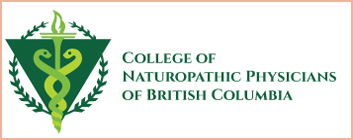5 Reasons Why You Might Have Low Energy

5 Reasons Why You Might Have Low Energy
Low energy, also known as fatigue, is an extremely common symptom that I see in my practice. Low energy can have a profound impact on how we live our lives – we can experience changes in our work performance, our ability to participate in physical activity, how we engage with our friends and family, and how we connect with ourselves.
Although there are many reasons for why people have low energy, here are five common reasons why many of my patients are feeling tired.
Poor Sleep Quality
Lifestyle factors, especially our sleep, can play a huge role in our overall energy levels. Getting consistent, good quality hours of sleep is extremely vital to repleting our energy. There are many factors that can lead to poor quality sleep. First, blue light exposure from screens in the evening has been shown to repress melatonin production. This highlights the importance of limiting our use of screens before bed. Second, too much caffeine consumption in the afternoon and evening can also impact our ability to fall and stay asleep. Third, our bedroom environment also plays a role in our overall sleep quality. Ensuring it is dark, cool, and quiet will also promote overall better sleep. Keep in mind that a sleep disorder such as sleep apnea could also be contributing to why you aren’t getting enough sleep. It’s important to be properly assessed to rule out all possible causes of why you may be having difficulty sleeping.
Nutrient Deficiencies
Nutrient deficiencies are a very common cause of fatigue. Having a deficiency in nutrients such as iron, vitamin B12, vitamin D, as well as a low overall caloric intake has been shown to make individuals feel extremely tired. The causes of nutrient deficiencies can range from poor dietary intake (ie: low intake of iron rich foods) to digestive diseases leading to poor absorption. Many of these nutrients can be screened through routine bloodwork and examined through a dietary assessment.
Thyroid Disease
Another common reason for why many people feel tired is due to varying forms of thyroid disease. Having both hypothyroidism (under-active thyroid gland) or hyperthyroidism (over-active thyroid gland) can lead to feelings of fatigue by impacting the amount the thyroid hormone being made in the human body. Based on your symptom presentation and lab work, your healthcare provider can help determine if your thyroid function is impacting your energy levels.
Blood Sugar Dysregulation
Our intake of sugar and our ability to properly metabolize it can impact our energy levels throughout the day. Starting in the morning with a sugary and carbohydrate rich breakfast foods and then continuing with a similar meal trend throughout the day creates a rollercoaster effect where blood glucose levels continuously spike high and fall. This can create negative shifts in our energy during the day, most often experienced as that mid afternoon energy slump. Overtime, these blood glucose spikes can create inflammation, insulin resistance, and excess body fat alongside an increased risk of long-term consequences such as type 2 diabetes, non-alcoholic fatty liver disease, heart disease, etc. Working alongside your healthcare provider, there are key diet and lifestyle suggestions that can improve blood sugar dysregulation and boost energy levels.
Stress, Anxiety, and Depression
One area that is often overlooked when assessing for causes of low energy is our mood and mental health. In those experiencing chronic stress, anxiety, and depression, having the energy to complete daily tasks, work projects, and to care for oneself and one’s family can be challenging. It’s extremely important to always pay attention to changes in mood in relation to chronic fatigue and to seek treatment when needed. Psychological factors and mental health should always be considered when assessing for low energy.
This post is intended for educational purposes only. Please speak to your licensed health care provider before implementing any health recommendations or treatments.
Welcome! I’m Dr. Sam Bowen, a licensed naturopathic doctor offering virtual and in-person naturopathic care to residents of British Columbia. From a young age, I have always aspired to work in the field of health and medicine. Growing up on Salt Spring Island, BC, I developed a strong curiosity to better understand the various factors that influence our health. I truly believed that the path to optimal health was more complex than just treating our presenting symptoms.
-
College of Naturopathic Physicians of British Columbia (CNPBC)
-
British Columbia Naturopathic Association (BCNA)
-
Canadian Association of Naturopathic Doctors (CAND)
-
Acupuncture – CNPBC certified
-
Intravenous Therapies – CNPBC certified
-
Prescriptive Authority in BC – CNPBC certified
-
Naturopathic Advanced Life Support – OHM Medical
-
B.Sc. Honours in Health Promotion – Dalhousie University
-
Doctor of Naturopathic Medicine – Boucher Institute of Naturopathic Medicine
-
Holistic Nutrition Certificate Program – Pacific Rim College
1008 Homer St, Unit #318,
Vancouver, BC, V6B 2X1






